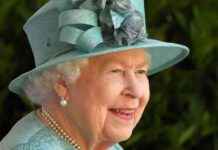Warning: Martin Lewis Advises on Money Gifts to Kids in Past 7 Years
Martin Lewis, a well-known financial expert, has recently issued a cautionary message to individuals who have given monetary gifts to their family members in light of potential inheritance tax implications. During a recent episode of his weekly podcast on BBC Sounds, Lewis engaged in a discussion with Charlotte Jackson, the Head of Guidance at the Money and Pensions Service, to shed light on the importance of strategic financial planning, particularly regarding pensions and wealth transfer to dependents.
Understanding the Benefits of Pensions
Jackson emphasized the significance of pensions as a means of passing on wealth to loved ones, such as spouses or children. She highlighted the tax relief associated with pension pots, stating that individuals who refrain from accessing their pension funds can pass them on to their heirs without incurring inheritance tax or capital gains tax implications. This tax-efficient strategy allows individuals to preserve their assets for future generations, providing a valuable financial legacy for their families.
The Seven-Year Rule and Inheritance Tax Considerations
Gifts given to individuals that are not immediately tax-free are classified as ‘potentially exempt transfers,’ subject to the seven-year rule. According to this rule, gifts will only be exempt from taxation if the giver survives for at least seven years following the transfer. In the event of the giver’s death within the seven-year period, the gift may be subject to inheritance tax, potentially impacting the amount passed on to beneficiaries. Jackson emphasized the importance of understanding these rules and planning accordingly to minimize tax liabilities and ensure the smooth transfer of wealth to future generations.
Strategic Pension Planning for Wealth Transfer
In light of the potential tax advantages associated with pensions, individuals are increasingly considering pension savings as a strategic tool for passing on wealth to their loved ones. By nominating beneficiaries to receive their pension funds upon death, individuals can designate spouses, children, grandchildren, or even charitable organizations as recipients of their pension assets. This flexibility allows individuals to tailor their wealth transfer strategy to meet their specific goals and priorities, ensuring that their assets are distributed in accordance with their wishes.
Moreover, individuals can choose to leave their pension funds in a trust or allocate them to multiple beneficiaries in varying proportions. This approach enables individuals to customize their wealth transfer plan based on the needs and preferences of their heirs, providing them with the flexibility to access funds as needed or maintain them as a long-term investment. By keeping their assets in a tax-advantaged pension wrapper, beneficiaries can continue to benefit from the advantages of pension savings, ensuring the preservation and growth of their inherited wealth.
In conclusion, Martin Lewis’s warning regarding money gifts to kids in the past seven years serves as a timely reminder of the importance of strategic financial planning and wealth transfer considerations. By understanding the implications of inheritance tax, utilizing pension savings effectively, and implementing a comprehensive wealth transfer strategy, individuals can safeguard their assets for future generations and ensure a lasting financial legacy for their loved ones. It is essential to seek professional advice and guidance when navigating complex financial matters to maximize the benefits of wealth transfer and secure a stable financial future for yourself and your family.



























